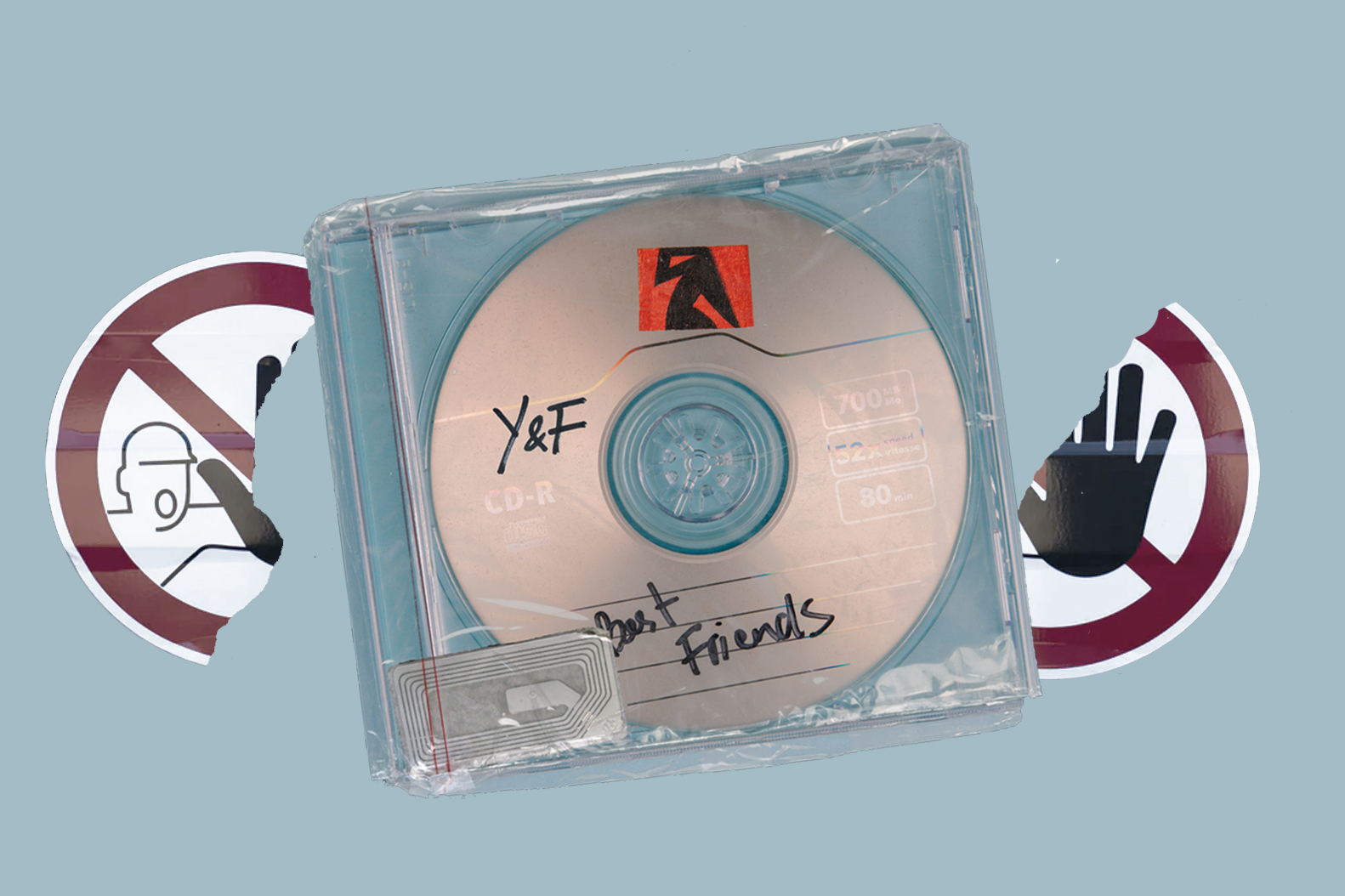A few weeks ago I was told by a younger friend that Hillsong Young & Free had recently released “Best Friends“. I mean it when I say that the news was shared with me like the song was the best thing to come out since the gospel.
In case you’re also a dinosaur like me, Hillsong Y&F is the youth band of Hillsong Church, which also has other bands (each with its own aim) namely Hillsong United and Hillsong Worship. You can scrutinise the differences here.
Anyway, I wasn’t nearly as enthused as my colleague and approached the new track with an (un)healthy suspicion.
You see, my first experience with Hillsong Y&F was hearing “Real Love” at a Hillsong Worship & Creative Conference a couple of years ago, where I recall being distinctly put off by some of the EDM sounds the song rode on.
So, as the first few seconds of “Best Friends” played, the swirling synthesised melody of what I assumed would be a kosher Chainsmokers song already had me frowning.
For a moment, in my head, I went back to a better time – a time when I would eagerly queue up for Hillsong United concerts and anticipate being awestruck by the shenanigans of Planetshakers’ double-pedalling maniac on the drums.
Some serious things must have happened over the years to kill this young and excitable teenager inside of me. Because, unlike before, I now find it impossibly hard to connect with loud rock songs or the droning tones of much modern music.
Worship is doubly challenging, though I do try my best to sing to God. If I could describe my taste in Christian music now, it’s probably a lot more Methodist in nature (just to give you an idea, I really love the hymns at Bible Study Fellowship).
As the “Best Friends” music video continued to play, I found myself stewing in increasingly uncharitable thoughts as the worship leader pranced around on screen.
That was the precise moment I realised that I really was just being critical and judgmental. I had turned into that Uncle who had such disparaging opinions of the songs I listened to when I was growing up.
I really don’t wanna be that guy (after all, where does the criticism end?), so I thought I’d at least try and understand Y&F a little better.

In a 2016 Billboard interview, Y&F worship leader Laura Toggs shared that as members of Hillsong United (I liked these guys very much) matured and began to “have families of their own and take on adulthood, many people at the church felt that there was a need for a new group that would aim its message at younger people with a stimulating new sound”.
That was how Y&F first came to the fore in 2012.
In other words, Hillsong United (formed in 1998!) was a band that came out of my generation, for my generation. Similarly, Y&F is a younger band for younger people today, probably something like 13-21 years old. That’s as young as those born in 2007 to give us a little perspective (oof).
Therefore, I suppose I shouldn’t be surprised that I didn’t immediately get it (the music and message) because I wasn’t the exact target or demographic.
So, who’s the band looking to impact? According to Toggs: “It’s also about zeroing in on a person that might be lost, that the songs may inspire them to find God and find their path.”
That’s not necessarily me, but the band carries a message I can still get behind. And I’ll tell you why: Forms of music or styles of worship, at the end of the day, are just preferences. That’s all they are – preferences. It’s not something primary or doctrinal even worth fighting or separating over.
So while choruses with “na-na” in them do nothing to help my intimacy with God and are songs that I would prefer not to sing in a church service, I recognise that it might help thousands of younger people find God and begin to walk with Him.
And I’ve journeyed with enough young people to learn that a disparaging and exasperating spirit certainly won’t.

But what about the lyrics of “Best Friends”?
Depending on who you’ve been talking to, there’s been some concern over the seeming omission of God and Jesus’ name. And that’s understandable.
But if I can speak plainly, I think we risk being myopic if we focus on that one (legitimate) observation. It helps also to notice what is there.
Throughout the stanzas, there’s a distinct sound of young hearts crying out for something more – a “higher way” – and we get a strong hint of that in the hook of the chorus: “We want the truth… I know it’s You.”
You’d have to go out of your way to insist that the song isn’t Christian (and to what end?). The songs aren’t overtly Christian, but they’re not particularly covert in the way they reflect on life and faith either.
Forms of music or styles of worship, at the end of the day, are just preferences.
So while the album isn’t recognisably “Christian” – I don’t think that’s what Hillsong Y&F is trying to do – it’s not a bad thing. For in reaching out to the people we want to introduce to Christ, the effectiveness of our methods must always be on our minds.
Think about what the apostle Paul said: “I have become all things to all people so that by all possible means I might save some” (1 Corinthians 9:22b).
All possible means. What that means for me is this: If reaching today’s young people with the good news of Jesus Christ looks a lot more like Y&F’s message than Hillsong United or even Don Moen’s – more power to them.
Besides, while I may not be inclined towards Y&F’s new stuff on a musical level, some of the other messages within the latest single are, without exaggeration, actually timeless.
All of the lights
I chased are now faded
All the cheap thrills
Were only time wasted
I may find the music funny, but the words are familiar; Christ’s redemption of the wayward teenager isn’t new.
From Augustine of Hippo’s years of hedonism to Edmund Chan’s youthful period of rebellion, God has always been working in the hearts of young people and turning them back to His love, for thousands of generations.
There’s also a lot to consider and glean from the sentiments of younger people.
I don’t want a stereotype
To decide who I am
It never knew me anyway
Do we hear that? In a simple verse, I learnt that people younger than us don’t want stereotypes to decide who they will become. And isn’t that just familiar?
At some point, I probably held similar sentiments singing in a darkened hall at the Singapore EXPO. Others may have also felt that same way through a particular hard Delirious song, or at a Festival of Praise event.

Whatever it is, let’s keep expressing Christian kindness and charity to one another.
I’m listening to this song and looking at those younger than me. And I don’t want my default mode of interaction in knowing them to be one of distance and discomfort, just because their experience and expressions of life and faith don’t look like what I’m used to seeing.
So go on, guys. I’m glad you’re “sick of pretending”. The truth is better – and we will all find it in Jesus.









